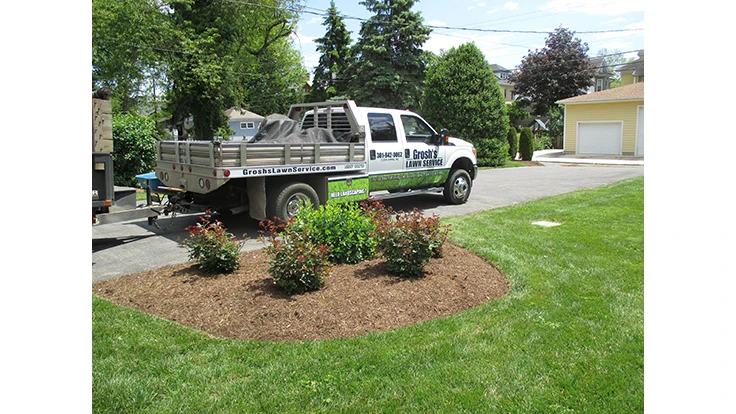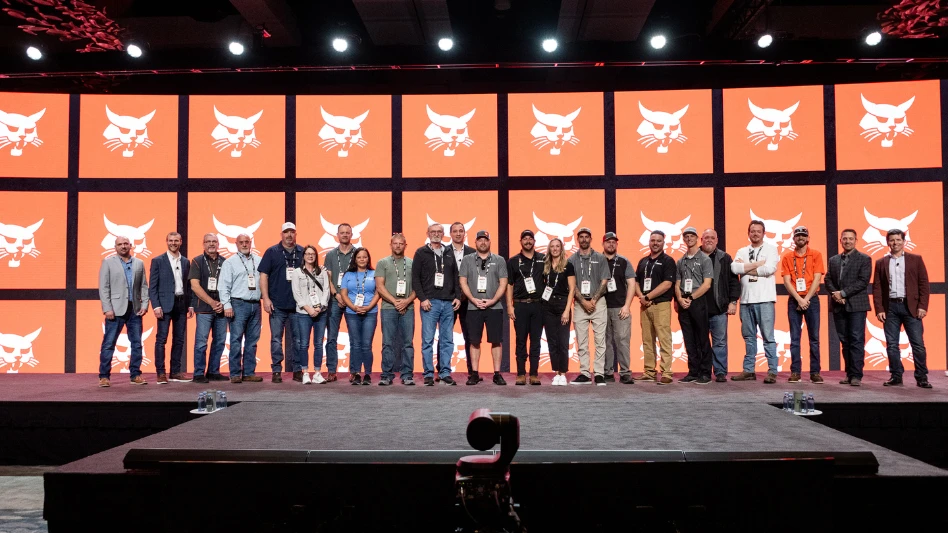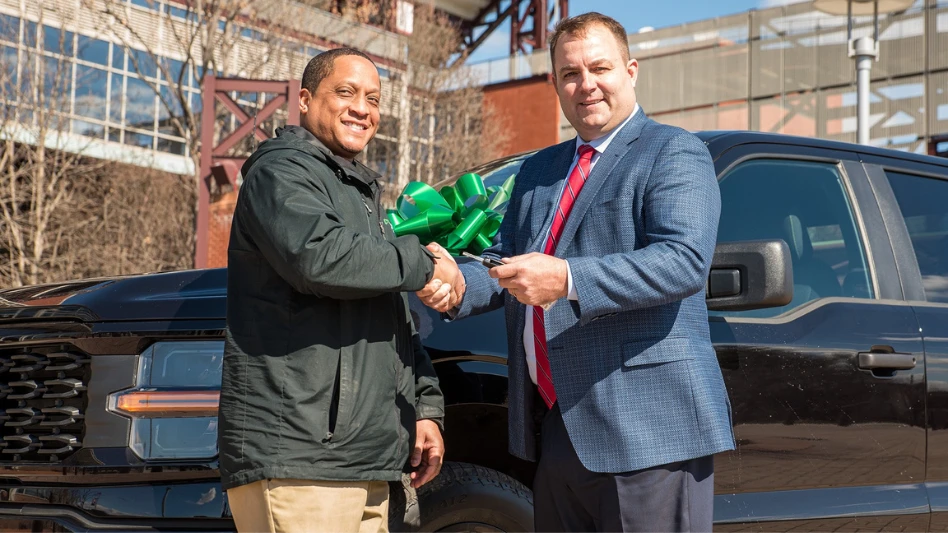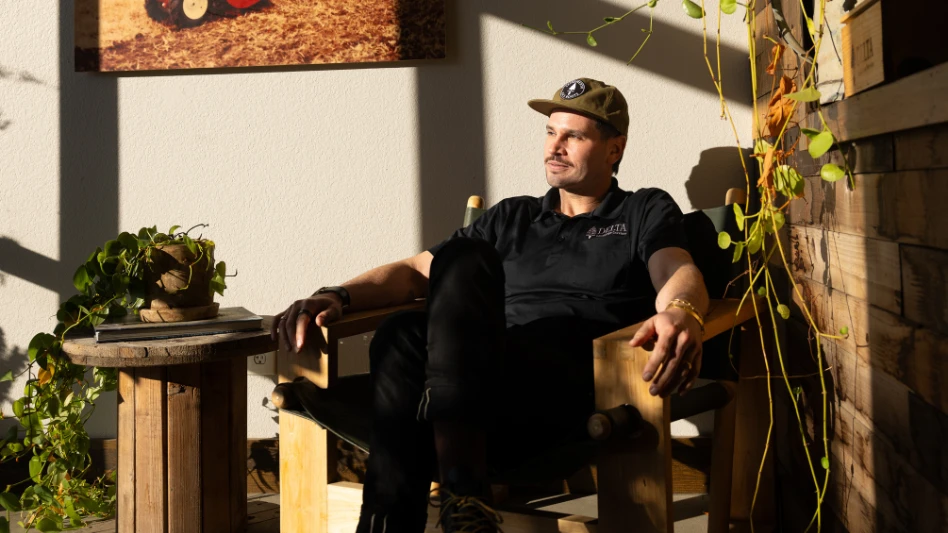
Photo courtesy of Grosh's Lawn Service.
From eco-friendly trucks used for estimates to large pick-ups that can haul heavy trailers to cabover trucks that house every tool for the job, each landscaper has a preferred set of wheels. But no matter the exact make or model, a few best practices can go a long way in extending the life of any vehicle.
Here are three tips from contractors:
1. Don’t keep old trucks.
Terry Younglove, owner and president of Outdoor Experts, a commercial and residential lawn maintenance company based in Romulus, Michigan, only buys new trucks unless a dealer offers a used truck with an “offer he can’t refuse.” He also takes out loans for his truck and usually keeps the vehicles until they are paid off.
“I have gotten rid of some earlier on. It might have been I was getting too many miles up on a truck too fast, so before you get it too old, just dump it,” he says adding that he also will trade in for a lower interest rate.
2. Outsource complex repairs.
Russ Jundt, founder and chief operating officer of Ham Lake, Minnesota-based Conserva Irrigation, negotiated a deal for maintenance with an auto mechanic 2 miles from his business.
“They take care of all of our vehicles and we charge them or task them with logging so they know when they’re due for tire rotation, when they’re due for an oil change, when they’re due for recommended maintenance, all that stuff,” he says.
The shop also performs an annual comprehensive check of each vehicle, usually performed in the off-season. The fleet pricing is roughly 20 percent lower than the standard pricing the shop offers, he says.
3. Keep it clean.
Grosh’s Lawn Service in Clear Spring, Maryland, has one employees who washes and vacuums the trucks every week. Owner and operator Tom Grosh has received comments from strangers about the cleanliness of his fleet as a result.
Having the trucks organized also helps with routine Maryland Department of Transportation vehicle safety and compliance inspections.
“As a member of the National Association of Landscape Professionals, we’re trying to convey a professional image to the community, and with our equipment, and the way we work, and with our trucks,” he says. “It is my name and reputation, and I do everything to protect that.”
The author is a freelance writer in Ohio.
Latest from Lawn & Landscape
- North by Northwest's charitable act for the Ronald McDonald House Charities
- Coxreels expands V-100 Series product line
- Landscape Workshop expands with 2 acquisitions
- Wilson360 adds Daniel Grange as new consultant
- Batman and business
- CH Products releases new tree stabilizer
- Savannah Bananas founder Jesse Cole to speak at Equip Exposition
- Catch up on last year's Benchmarking report





